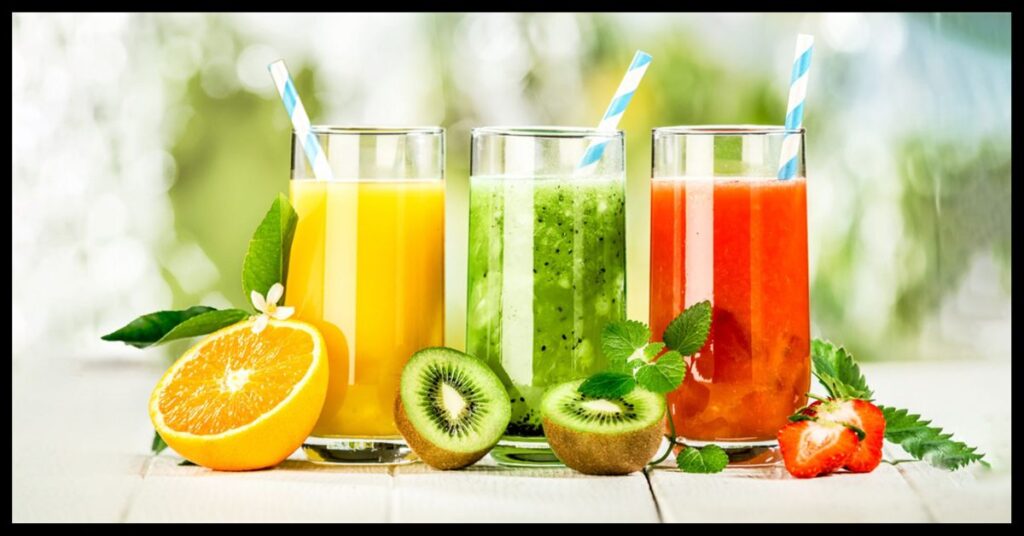A liquid diet involves consuming food in liquid form, which can be beneficial for various medical, health, or weight loss purposes. Whether recovering from surgery, managing digestive issues, or seeking a short-term cleanse, liquid diets offer versatile and easy-to-digest options. This article provides a detailed guide to healthy and balanced liquid diet recipes, along with important considerations to ensure nutritional adequacy. All information is grounded in evidence and suitable for a general audience.
Table of Contents
ToggleWhat Is a Liquid Diet?

A liquid diet typically includes any food that is in liquid form or becomes liquid at room temperature. There are three main types of liquid diets:
- Clear liquid diet – Water-based liquids such as broths, juices without pulp, and gelatin.
- Full liquid diet – Includes clear liquids plus milk, soups, smoothies, and pureed foods.
- Meal replacement liquid diet – Often used in weight loss or medical programs, including shakes and smoothies that replace regular meals.
Medical professionals may prescribe liquid diets before or after surgery, during illness, or as part of a supervised weight-loss plan.
Note: A prolonged liquid-only diet should only be followed under professional guidance to avoid nutrient deficiencies. According to the National Institutes of Health (NIH), liquid diets can lack fiber and essential nutrients if not carefully planned.
Benefits of Liquid Diets
- Easier digestion: Ideal for people with gastrointestinal disorders.
- Hydration support: Liquids help maintain fluid balance in the body.
- Nutrient delivery: Smoothies and soups can be fortified with vitamins, minerals, and protein.
- Weight management: In calorie-controlled settings, liquid diets may aid in weight loss.
Nutritious Liquid Diet Recipes
Below are a variety of liquid diet recipes that are both delicious and packed with essential nutrients. These recipes fall into different categories: smoothies, soups, broths, and juices.
1. Protein-Packed Breakfast Smoothie
Best for: Full liquid diets, meal replacements
Ingredients:
- 1 banana
- 1 cup unsweetened almond milk
- 2 tablespoons peanut butter
- 1 scoop protein powder (vanilla or unflavored)
- ½ teaspoon cinnamon
Instructions: Blend all ingredients until smooth. Add ice for a thicker consistency. This smoothie provides a good balance of protein, healthy fats, and carbohydrates.
Nutrition Tip: Protein is vital to maintain muscle mass during a low-calorie or restricted diet. The Dietary Guidelines for Americans recommend 46-56 grams of protein daily for adults, depending on age and gender.
2. Healing Chicken Bone Broth
Best for: Clear or full liquid diets, post-surgery recovery
Ingredients:
- 2 lbs chicken bones (preferably organic)
- 2 carrots
- 2 celery stalks
- 1 onion
- 3 cloves garlic
- 1 tablespoon apple cider vinegar
- Salt and pepper to taste
- 8 cups water
Instructions: Simmer all ingredients in a large pot for 12-24 hours. Strain before serving. Bone broth is rich in collagen, amino acids, and minerals, supporting gut health and joint function.
3. Creamy Vegetable Soup
Best for: Full liquid diets, vegetarian-friendly
Ingredients:
- 1 cup chopped carrots
- 1 cup chopped zucchini
- 1 cup spinach
- ½ onion
- 2 cloves garlic
- 2 cups low-sodium vegetable broth
- 1 cup unsweetened oat milk
Instructions: Sauté vegetables lightly, then simmer in broth for 20 minutes. Blend until smooth. Add oat milk for creaminess.
4. Apple-Ginger Detox Juice
Best for: Clear liquid diets, detox days
Ingredients:
- 2 apples
- 1-inch fresh ginger
- ½ lemon (juiced)
- 1 cup water or coconut water
Instructions: Juice all ingredients or blend and strain for a clearer consistency. This juice supports digestion and immunity with antioxidants and anti-inflammatory properties.
5. Oats and Berry Meal Replacement Shake
Best for: Weight loss liquid diets, high-fiber liquid option
Ingredients:
- ½ cup rolled oats (soaked)
- 1 cup Greek yogurt or plant-based alternative
- ½ cup blueberries
- 1 teaspoon honey
- ½ teaspoon vanilla extract
Instructions: Blend until smooth. This recipe is rich in fiber, probiotics, and antioxidants, helping you feel full and satisfied.
Fact: According to the U.S. Department of Agriculture (USDA), fiber intake supports heart health and digestion, with daily recommendations of 25–38 grams.
Nutritional Tips for a Balanced Liquid Diet
To make a liquid diet more sustainable and safe, consider the following guidelines:
- Include protein: Use Greek yogurt, milk, tofu, or protein powders.
- Add healthy fats: Use avocados, nut butters, or olive oil in recipes.
- Use fruits and vegetables: Blend them into smoothies and soups to get essential vitamins.
- Monitor sugar intake: Avoid excess sugar from juices or flavored drinks.
- Stay hydrated: Include water, electrolyte drinks, and herbal teas.
Who Should Avoid Liquid Diets?
Liquid diets may not be suitable for:
- Children or pregnant women unless supervised by a physician
- Individuals with diabetes due to potential blood sugar spikes
- People with eating disorders, as restrictive diets may trigger symptoms
It is always advisable to consult with a healthcare provider before beginning a liquid diet, especially for extended periods.
Sample Liquid Diet Meal Plan (1 Day)
| Time | Meal | Recipe |
|---|---|---|
| 8:00 AM | Breakfast Smoothie | Banana + almond milk + protein |
| 11:00 AM | Herbal Tea + Clear Broth | Green tea + chicken bone broth |
| 1:00 PM | Vegetable Soup | Blended carrot-zucchini soup |
| 4:00 PM | Apple-Ginger Juice | Detox juice |
| 7:00 PM | Oatmeal Berry Shake | Meal replacement shake |
Safety Considerations
- Short-term use only: Most experts recommend limiting strict liquid diets to 3–7 days unless medically supervised.
- Watch for signs of malnutrition: Fatigue, dizziness, or muscle loss may indicate nutrient deficiency.
- Balance is key: Use nutrient-dense recipes to maintain energy and overall wellness.
Conclusion
Liquid diet recipes offer a practical solution for those needing easy-to-digest, nutrient-packed meals. Whether used for medical recovery, detox, or short-term weight loss, incorporating balanced and varied ingredients is crucial to staying healthy. Always seek professional guidance before starting a liquid-only meal plan to ensure safety and effectiveness.






